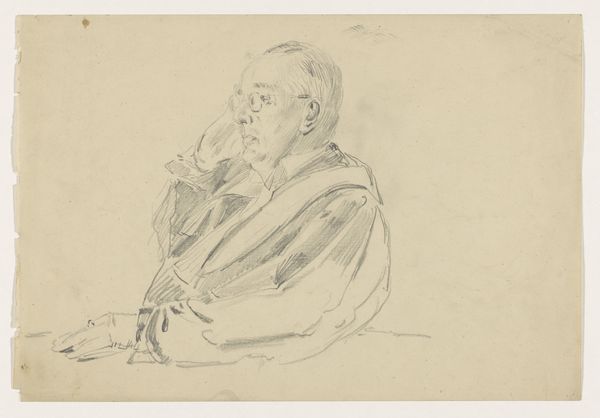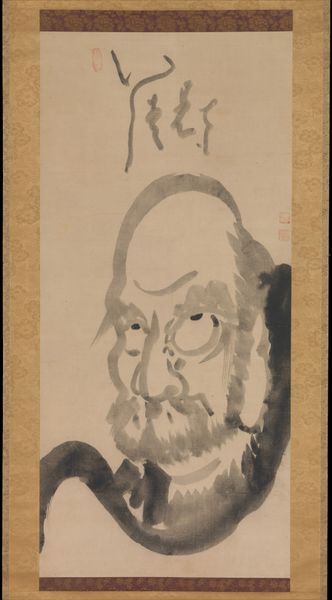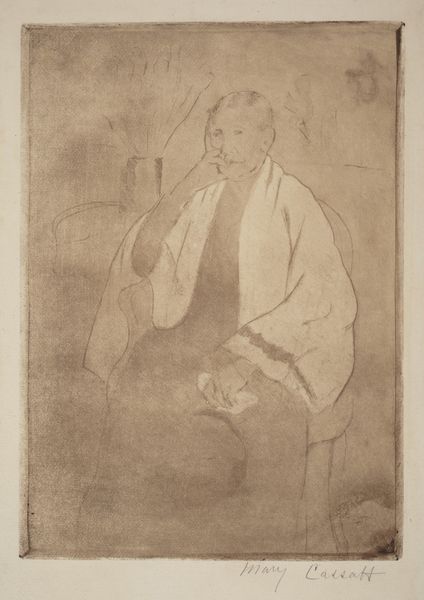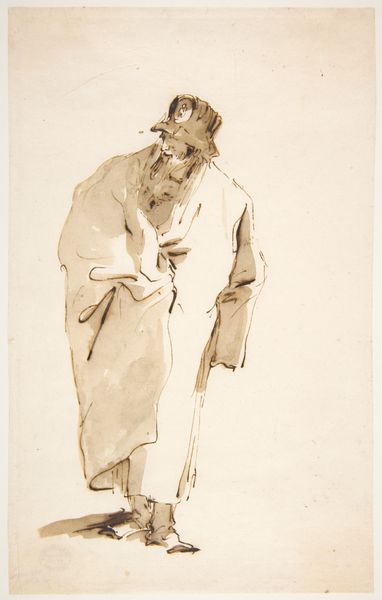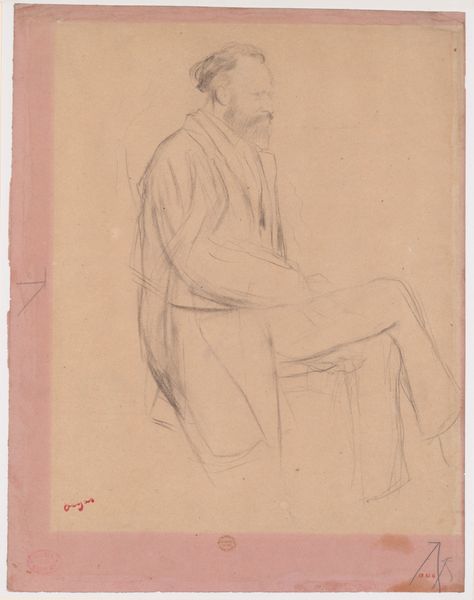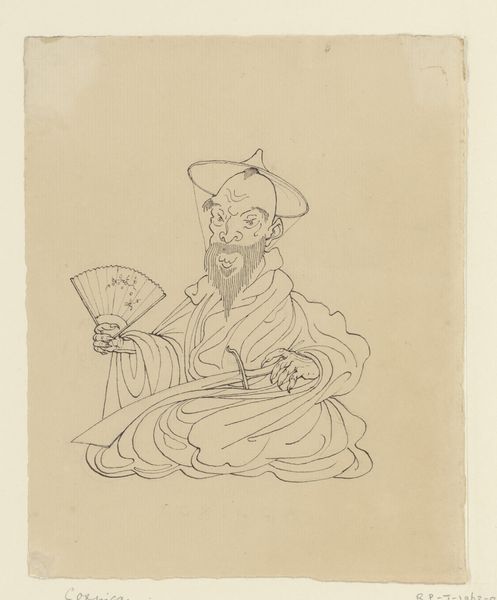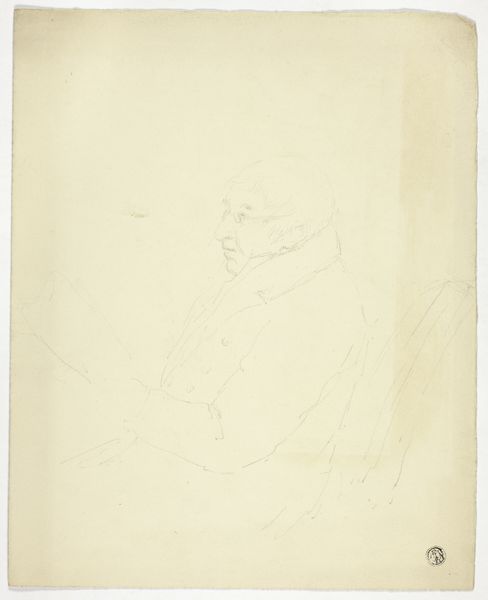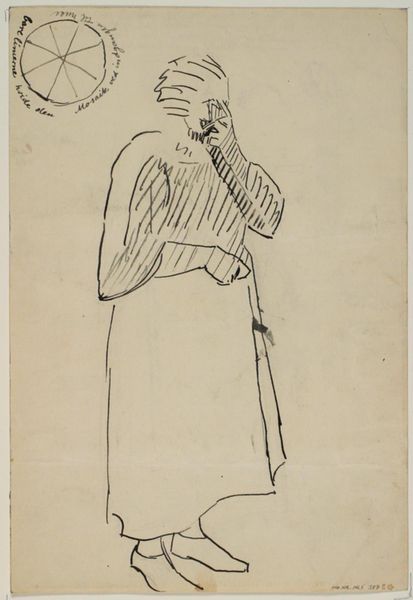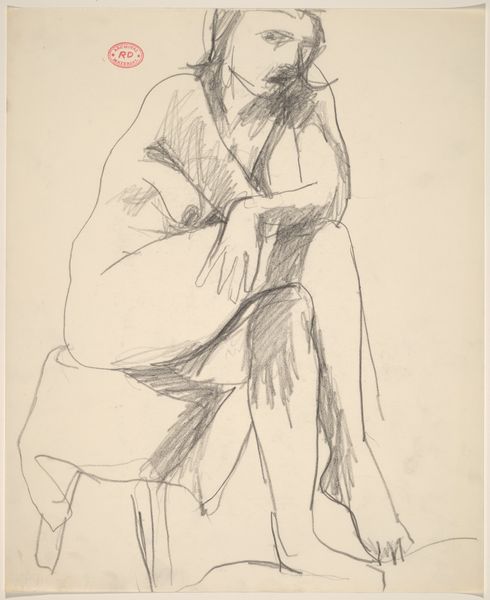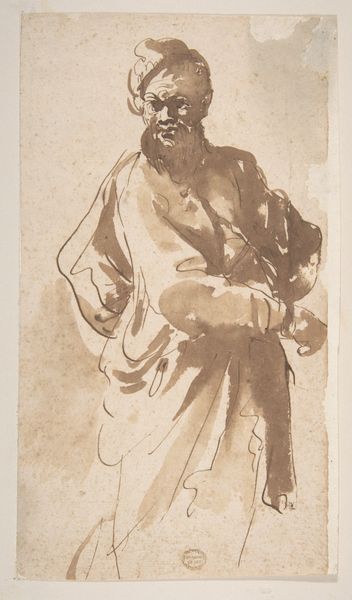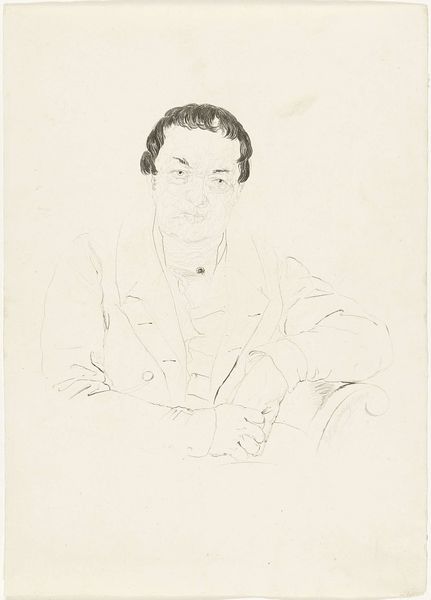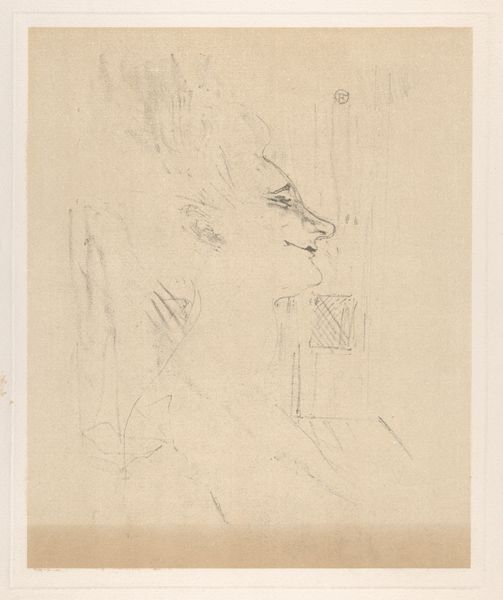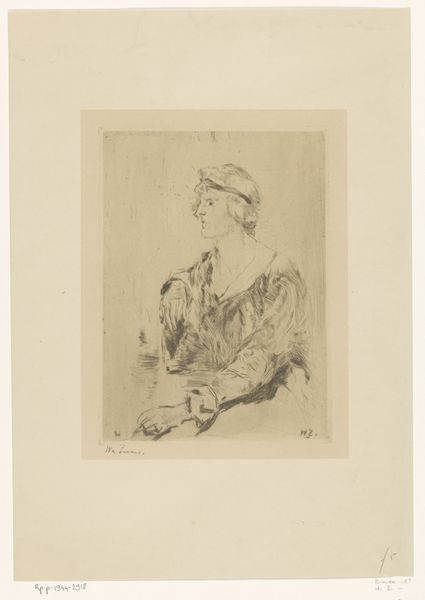
drawing, ink
#
drawing
#
self-portrait
#
charcoal drawing
#
ink
#
pencil drawing
#
portrait drawing
#
portrait art
Dimensions: 18 11/16 × 21 1/2 in. (47.5 × 54.6 cm)
Copyright: No Copyright - United States
Editor: Victor Emile Prouvé's "Old Man Seated," made around 1865, is a captivating drawing rendered in ink and charcoal. I am immediately struck by its understated expressiveness, particularly in the way the artist captures the subject's weariness through posture and delicate shading. What’s your interpretation of this work? Curator: The beauty of Prouvé's piece resides precisely in its quiet contemplation, wouldn’t you say? From a historical perspective, we should view it within the broader context of the rise of Realism in 19th-century France. The art world saw artists shifting away from idealized depictions, which favored honest portrayals of everyday life and ordinary individuals. Given the social climate and prevailing aesthetic values, where would a drawing of an old man be seen, shown, appreciated? Editor: Hmm, perhaps smaller venues like cafes or private gatherings? There weren’t vast museum retrospectives like today, right? I suppose that impacted the artist’s approach, too, not creating something monumental. Curator: Precisely! Consider how the drawing is executed—the loose, almost ephemeral lines. Is that style in dialogue with other more formally approved works from this period? Who did art serve at that time? The bourgeoisie? What purpose did these works fulfill? Are we meant to sympathize with his condition or ignore him all together? Editor: That’s a good point. Thinking about the social role the drawing might have played at the time really gives a new perspective on its meaning. It moves beyond just the aesthetic value and becomes an interesting statement on society. Curator: Exactly. Prouvé offers, perhaps unintentionally, a mirror reflecting the societal values of his time, prompting reflection on themes of aging, labor, and social status through a very intimate and unassuming lens. Editor: Well, looking at it now, I better appreciate not just what Prouvé created, but why, and who might have encountered it back then. Thanks for untangling those layers for me!
Comments
minneapolisinstituteofart about 2 years ago
⋮
Painter, sculptor, and decorative artist Victor Prouvé is a key figure in the development of Art Nouveau, a movement inspired by the organic forms of nature. Born in the Art Nouveau hotbed of Nancy, he and other artists there helped drive popular taste toward this new style and away from rehashed versions of historical styles. Prouvé’s Old Man Seated belongs to a group of brush drawings in which he applied ink washes with extraordinary quickness and spontaneity. In subject matter this sheet feels like a realist work, but the technique speaks to an interest in the sweeping brushwork of Asian calligraphy.
Join the conversation
Join millions of artists and users on Artera today and experience the ultimate creative platform.
